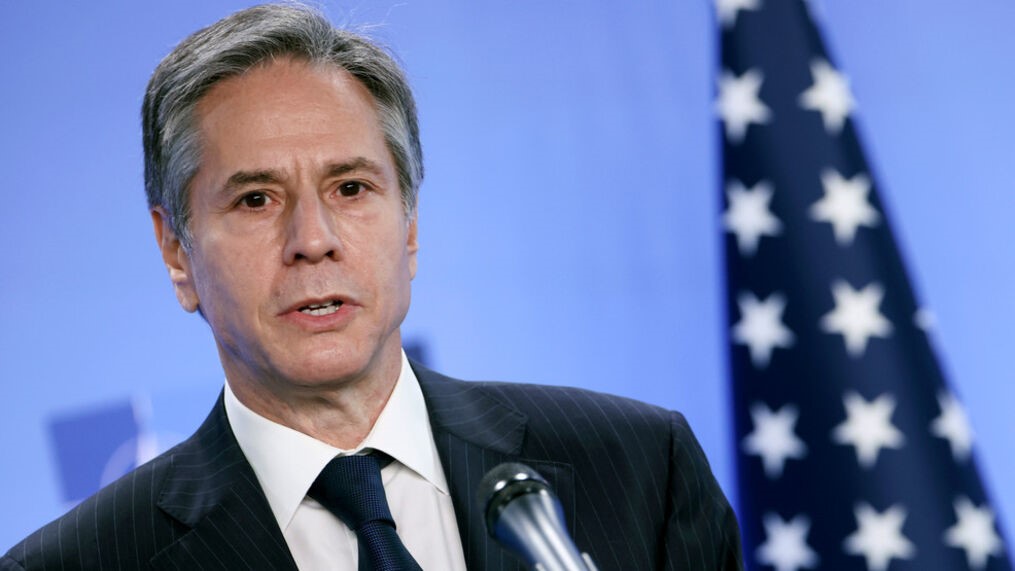VIENNA/WASHINGTON, (Reuters) – Most of the nine people who will sit on Haiti’s political transition council have been named by the groups they represent, although a couple are still pending, U.S. Secretary of State Antony Blinken said yesterday.
Haitian Prime Minister Ariel Henry announced on Monday he would step down once the council, made up of seven voting members and two observers from different political coalitions and sectors of society, was in place.
The State Department said on Tuesday it expected that members of the transition council would be appointed in the next 24-48 hours, but the process has lagged.
“This is never going to be smooth and never going to be linear,” Blinken told reporters during a visit to Austria. “So that’s a work in progress, but we’ve seen that move forward.”
The Miami Herald on Thursday reported that five groups had put forward names, but that disagreements remained, with one group presenting multiple candidates.
Political party Platform Pitit Desalin said on Wednesday it was pulling out of the agreement. It plans to install its own council and wants it to include Guy Philippe, who was deported from the U.S. in November after serving six years in prison and is seeking an amnesty for gang leaders.
Blinken participated in talks on Monday held by a regional Caribbean bloc, along with representatives from Haiti’s government and opposition, on tackling the crisis in Haiti. Spiraling gang violence has fueled a humanitarian disaster, cutting off food supplies and forcing hundreds of thousands from their homes.
After Henry announced later on Monday that he would step aside, Port-au-Prince was initially quieter, but violence has flared up again in the last two days.
Yesterday, a plume of thick, black smoke could be seen billowing out of downtown Port-au-Prince. Local media reported that businesses in affluent suburb Petion-Ville had shuttered and that burning tires blocked streets in nearby Delmas.
“It’s starting off very, very badly,” Frederic Boisrond, a sociologist at McGill University told Radio-Canada, pointing to the dissent within the groups proposed for the transition council by leaders in Jamaica.
“Elections are very long-term prospect,” he added, pointing to the need, after restoring security, to recreate an electoral roll and reappoint mayors, senators and deputies. “This is a huge machine to reinstall. Haiti is in year zero of democracy.”
Haiti’s last elections took place in 2016 and turnout was reported at around 20%.
Heavily armed gangs have meanwhile taken over much of the capital, and rights groups have reported widespread killings, kidnappings and sexual violence. More than 360,000 people are internally displaced in Haiti, according to U.N. estimates.
U.S. aid chief Samantha Power announced $25 million in humanitarian assistance for Haiti on Friday to cover food, essential relief supplies, relocation support and emergency health care. That was on top of the $33 million announced on Monday.
A humanitarian airbridge announced by the United Nations was set to operate from the Dominican Republic, but has faced setbacks.
Dominican authorities said they had agreed on an evacuation route with Haiti “exclusively for preventive or emergency exits of Dominicans and staff from missions, diplomatic and international organizations.” This route will be operated by the organizations’ own aircraft, they said.
Blinken yesterday also said an international force intended to restore security to Haiti was moving forward, but that challenges remained.
The force, set to be led by Kenya, has faced stumbling blocks over funding and concerns within Kenya as the security situation in Haiti has deteriorated. Nairobi announced earlier this week it was pausing the deployment and would re-evaluate once a new Haitian government was in place.
“Once the new council is fully stood up – and again, I would anticipate that happens in the coming days – that process with the force will be able to move forward and then we have a trajectory that has at least the chance of putting Haiti in a more stable place,” Blinken said.
“Having said all of that, every single day there are challenges to that process. There are political challenges, there are security challenges, and we’re working to address them.”






